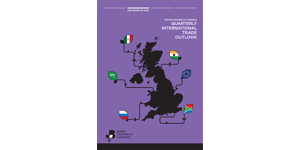All you need to know about TPP
Sukhdeep Dhillon, Global Economic Advisor, British Chambers of Commerce
TPP will essentially make US businesses more competitive. The TPP could mean lower prices for US consumers and businesses which will indirectly effect UK businesses. If the deal means that manufacturers in the US can use cheaper imported parts or raw materials they'll be more competitive.
07 October 2015
A trans-Pacific trade deal has been reached, cutting barriers for business between 12 countries.
What is the TPP?
The Trans-Pacific Partnership (TPP) is a trade agreement between several Pacific Rim countries. The TPP is an expansion of the Trans-Pacific Strategic Economic Partnership Agreement (TPSEP) which was signed by Brunei, Chile, Singapore, and New Zealand in 2006. Additional countries joined in 2008. including: Australia, Canada, Japan, Malaysia, Mexico, Peru, the US, and Vietnam, bringing the total number of participating countries to twelve.
The aim of the agreement is to enhance trade and investment among the TPP partner countries, to promote innovation, economic growth and development, and to support the creation and retention of jobs. Among other things, the TPP will seek to lower trade barriers such as tariffs, establish a common framework for intellectual property, enforce standards for labour law and environmental law, and establish an investor-state dispute settlement mechanism.
When did talks start?
19 formal rounds of TPP negotiations have been with the first being held in March 2010 in Melbourne. After the 19th round of formal meetings, negotiations stopped taking the form of official rounds, but other meetings, such as Chief Negotiators Meetings and Ministers Meetings continued.
Winners and losers from the deal?
The Asia-Pacific region accounts for approximately 60% of global GDP and 50% of international trade, and is the fastest growing region in the world.
Under the deal, 98% of tariffs will be eliminated on a wide range of products including: dairy, beef, sugar, wine, rice, horticulture and seafood, manufactured products, resources and energy.
The deal is a remarkable achievement given the very different approaches and standards within the member countries, including environmental protection, workers' rights, and regulatory coherence, however the biggest criticism of the TPP has been the secretive nature of the negotiations.
How does this affect UK businesses?
TPP will essentially make US businesses more competitive. The TPP could mean lower prices for US consumers and businesses which will indirectly effect UK businesses. If the deal means that manufacturers in the US can use cheaper imported parts or raw materials they'll be more competitive.
What's next?
With many of the 12 countries consumed by upcoming elections, leaders face a lengthy battle to see the deal passed.
Sukhdeep Dhillon is the BCC's Global Economic Advisor. For all the latest news from Sukhdeep, follow @SukiDil






